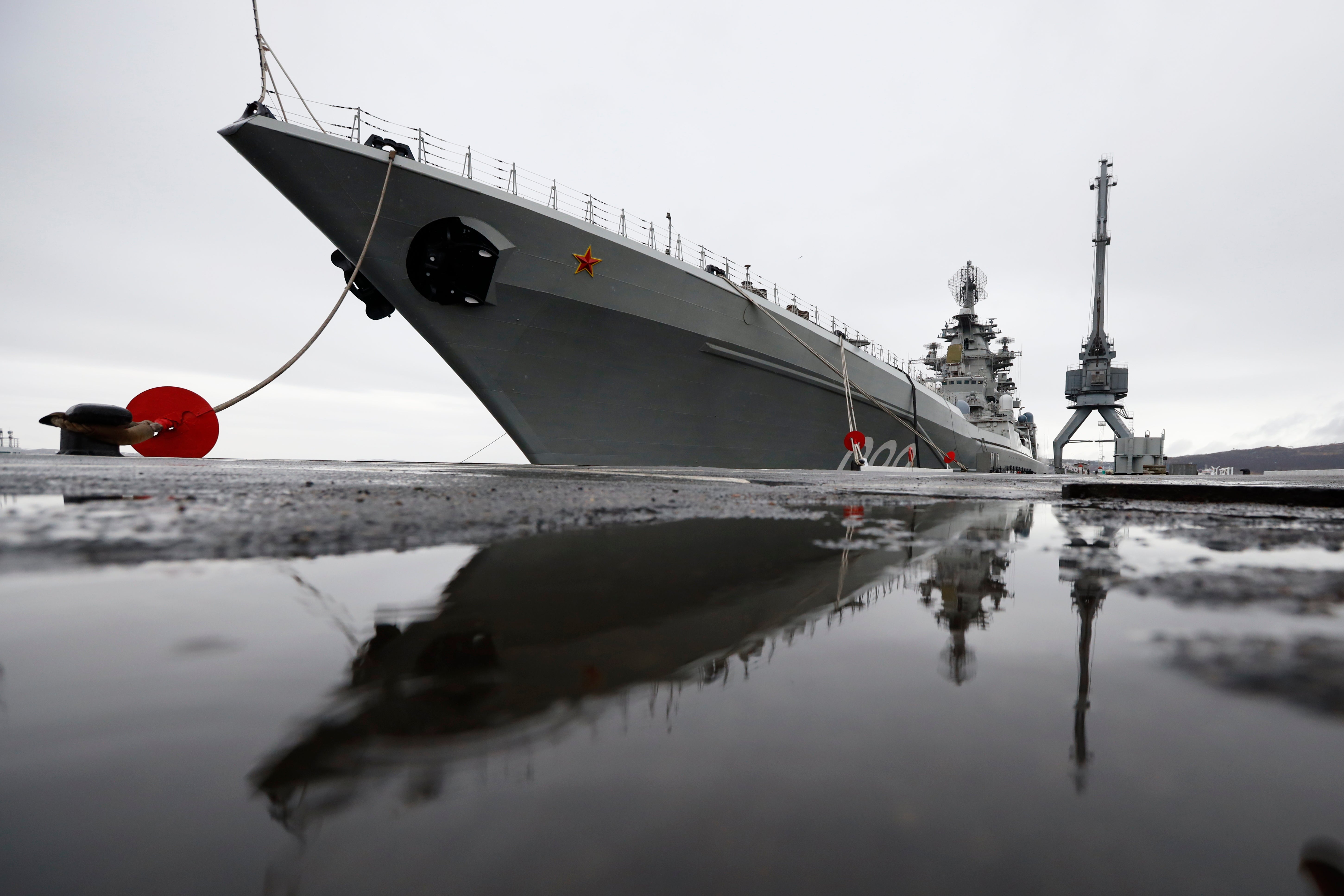Russian admiral frets over 'provocative' NATO drills
A top Russian admiral has complained about increased NATO military activities near the country’s borders, describing them as a threat to regional security

A top Russian admiral complained Thursday about increased NATO military activities near the country's borders, describing them as a threat to regional security.
Adm. Alexander Moiseyev, the commander of Russia's Northern Fleet, said that NATO navy ships' presence in the Barents Sea and the Norwegian Sea have reached levels unseen since World War II.
Speaking to reporters onboard the Northern Fleet's flagship, the Pyotr Veliky (Peter the Great) missile cruiser, at its Arctic base of Severomorsk, Moiseyev charged that NATO drills have edged closer to Russian borders, and noted increasingly frequent flights by U.S. nuclear-capable strategic bombers.
“Such actions are provocative and have a negative impact on regional security,” Moiseyev said.
He voiced particular concern about the U.S. military assets on the territory of NATO ally Norway that borders Russia, charging that it has led to an “increase of the conflict potential in the Arctic.”
Ties between Russia and the West have plummeted to post-Cold War lows after the 2014 Russian annexation of Ukraine’s Crimean Peninsula and Moscow’s support for a separatist insurgency in eastern Ukraine
Moscow has repeatedly voiced concern over the deployment of NATO forces near Russian borders. Russia and the alliance also have blamed each other for conducting destabilizing military exercises near the borders.
Last month, a massive build-up of Russian troops alongside the Ukrainian border fueled concerns in Ukraine and the West. The Kremlin rejected Western worries, charging that the troops don't threaten anyone, but it also warned Ukrainian authorities against trying to use force to reclaim control of the rebel east.
Bookmark popover
Removed from bookmarks